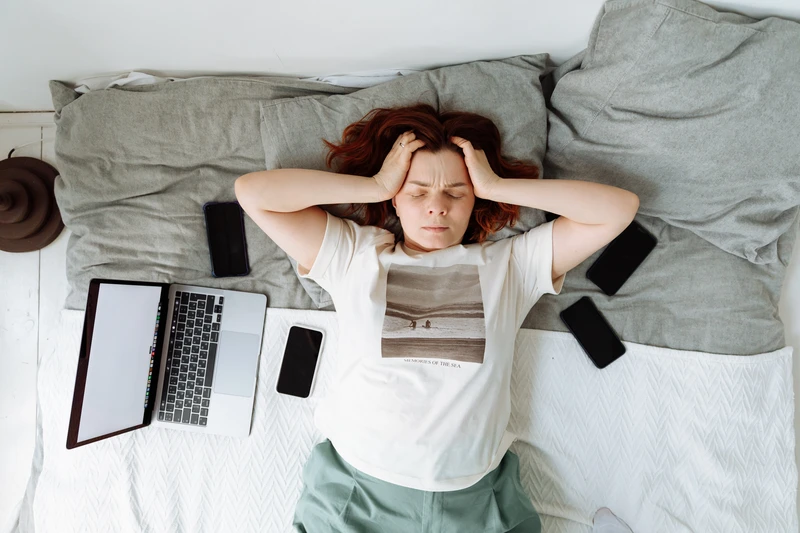Researchers at the University of Messina (Italy) have found that excessive smartphone use negatively affects cognitive performance and psychological well-being. During the study, they discovered that the reluctance to detach from smartphones is often linked to loneliness and low self-esteem, the publication reported. RsyPost .
Researchers Rosa Fabio, Alessia Stracuzzi, and Riccardo Lo Faro became interested in the relationship between endless “screen time” on smartphones and cognitive abilities. The team also drew a parallel between phone addiction and mental health.
The work of Italian researchers has continued a series of other studies dedicated to the so-called nomophobia. The term was coined in 2010. It refers to the fear of being without a phone and is an abbreviation of the English phrase “No mobile phone phobia.”

What scientists have learned
A large portion of the planet’s population living in industrially developed regions owns smartphones. However, the fear of being without them becomes a serious issue for some. It turns out that nomophobia has many negative consequences.
Italian researchers analyzed the effects of this dependency using a sample of 111 participants aged 18 to 65. One-third of the group consisted of college students, while the rest were workers. The team collected data from each participant’s phone through the SocialStatsApp service, which aggregates information about social media usage, including TikTok, Facebook, Instagram, and WhatsApp.
Participants were tested using a short version of the Smartphone Addiction Scale – Short Version (SAS-SV) and the General Psychological Well-Being Index.
At the first stage of the research, the team assessed the level of smartphone usage for each participant.
In the second, experimental phase, the group was asked to limit smartphone use to one hour a day for three consecutive days.
In the third stage, everyone was allowed to use smartphones at their own discretion for seven consecutive days.
A day before and after the experimental phase, researchers assessed the participants’ working memory, attention, self-control, and auditory and visual reaction.
The results showed that participants with a higher level of smartphone addiction often did not adhere to the restrictions set by the team. They spent more time on their phones than they had promised at all three stages.

What threatens nomophobes?
Researchers noted that participants with a higher level of smartphone addiction generally exhibited poorer memory, a rather low level of self-control, and visual and auditory response.
Ultimately, participants with a high level of smartphone dependence scored lower on the Overall Psychological Well-Being Index.
The team concluded that the everyday lives of people who are overly dependent on smartphones are exposed to serious risks. These risks, in particular, relate to a decrease in self-control. brain work and slowing down the reaction.
In contrast, those who are not very attached to their phones report better quality of life and psychological well-being.
Interestingly, some potential group members declined to participate in the study even before it began, as they learned about the “strict” restrictions on phone usage. The research team sees this as a drawback. This means that individuals with an extremely high level of smartphone dependence were left out of the study, which the team highlighted for future researchers on this topic.
